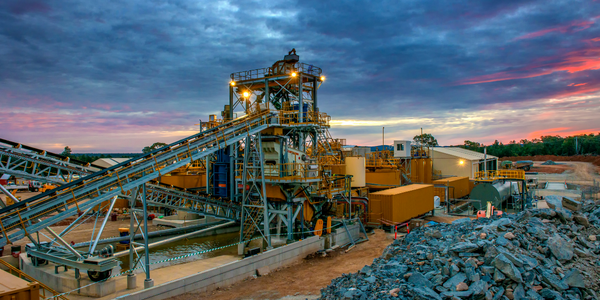Sustainable Forestry Made Easy Using Lowcode
公司规模
Large Corporate
地区
- Africa
- Europe
国家
- Netherlands
产品
- WaveMaker
技术栈
- Low-Code Platform
- HTML5
- Microservices Architecture
- APIs
实施规模
- Enterprise-wide Deployment
影响指标
- Environmental Impact Reduction
- Productivity Improvements
- Digital Expertise
技术
- 平台即服务 (PaaS) - 应用开发平台
- 应用基础设施与中间件 - API 集成与管理
- 平台即服务 (PaaS) - 连接平台
适用功能
- 现场服务
- 物流运输
- 质量保证
用例
- 资产跟踪
- 车队管理
- 预测性维护
- 实时定位系统 (RTLS)
- 远程资产管理
服务
- 软件设计与工程服务
- 系统集成
关于客户
NRD (Natural Resources Development S.A.) is a company based in Liechtenstein that specializes in sustainable forest management, operating primarily in the African sub-continent. The company relies heavily on data to manage its operations and sought to digitize all its sustainable forest management processes. To achieve this, NRD partnered with Vanenburg, an independent IT services company based in the Netherlands. Vanenburg is a WaveMaker certified premier partner of the European Union (EU) and works in the mobile applications and cloud services domain for both large and small enterprises. NRD's goal was to streamline their legal logging operations and manage processes like verification and licensing of authorized logs being exported globally.
挑战
The Republic of Liberia in Africa has a serious history of illegal logging, which remains a significant issue. To mitigate this, the United Nations developed a barcode system to track logs through the supply chain. NRD S.A. was chosen by the EU to help Liberian authorities curb illegal logging. They needed a system to streamline legal logging operations, including verification and licensing of authorized logs for export. NRD invested in 440,000 hectares of forest area in Brazil and Liberia to initiate sustainable forest management. Data collection was crucial, with each tree earmarked using barcodes generated from parameters like GPS location, dimensions, and log time. The forestry department maintained a central database stored on the cloud. Trees were chosen for logging based on quality and carbon dioxide neutrality, making the process traceable and transparent.
解决方案
Vanenburg's main challenge was to design a solution that could digitize all of NRD’s processes, including tracking forest operations, financial processes, logistics, and fleet management. The platform needed to be mobile-first to allow field workers in remote Liberian forests to tag each tree and record data offline on their mobile devices. This data would later be uploaded to a cloud-based portal. Vanenburg used the WaveMaker low-code platform to build a modern application quickly and at scale. WaveMaker outperformed other vendors in terms of scalability, onboarding time, and offline capability. The application used HTML5-based UI themes and widgets, resulting in a user-friendly interface. The app captured data like GPS location, log time, and dimensions, storing it in offline tables built into the app. The offline functionality was crucial as field workers operated in remote areas without internet connectivity. The platform allowed for offline data capture, which was later uploaded to a cloud-based platform. The syncing process was designed to operate with minimal overheads, enabling large data transfers even over weak network signals.
运营影响
数量效益

Case Study missing?
Start adding your own!
Register with your work email and create a new case study profile for your business.
相关案例.

Case Study
Remote Monitoring & Predictive Maintenance App for a Solar Energy System
The maintenance & tracking of various modules was an overhead for the customer due to the huge labor costs involved. Being an advanced solar solutions provider, they wanted to ensure early detection of issues and provide the best-in-class customer experience. Hence they wanted to automate the whole process.

Case Study
IoT Applications and Upgrades in Textile Plant
At any given time, the textile company’s manufacturing facility has up to 2,000 textile carts in use. These carts are pushed from room to room, carrying materials or semi-finished products. Previously, a paper with a hand-written description was attached to each cart. This traditional method of processing made product tracking extremely difficult. Additionally, making sure that every cart of materials or semi-finished products went to its correct processing work station was also a problem. Therefore, the company desired an intelligent solution for tracking assets at their factories. They also wanted a solution that would help them collect process data so they could improve their manufacturing efficiency.
.png)
Case Study
Improving Vending Machine Profitability with the Internet of Things (IoT)
The vending industry is undergoing a sea change, taking advantage of new technologies to go beyond just delivering snacks to creating a new retail location. Intelligent vending machines can be found in many public locations as well as company facilities, selling different types of goods and services, including even computer accessories, gold bars, tickets, and office supplies. With increasing sophistication, they may also provide time- and location-based data pertaining to sales, inventory, and customer preferences. But at the end of the day, vending machine operators know greater profitability is driven by higher sales and lower operating costs.

Case Study
Goldcorp: Internet of Things Enables the Mine of the Future
Goldcorp is committed to responsible mining practices and maintaining maximum safety for its workers. At the same time, the firm is constantly exploring ways to improve the efficiency of its operations, extend the life of its assets, and control costs. Goldcorp needed technology that can maximize production efficiency by tracking all mining operations, keep employees safe with remote operations and monitoring of hazardous work areas and control production costs through better asset and site management.




